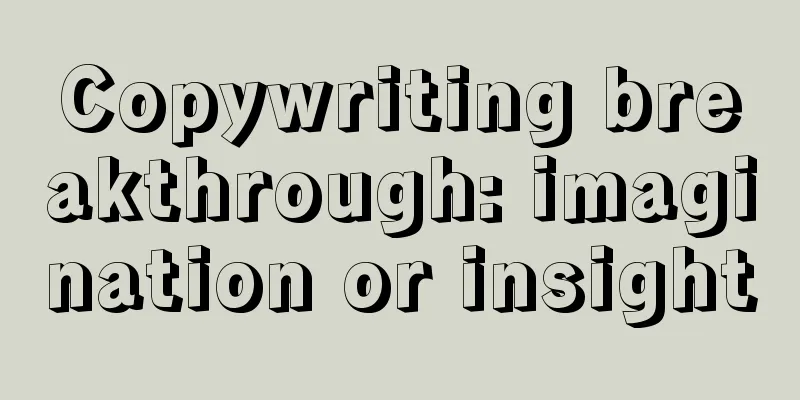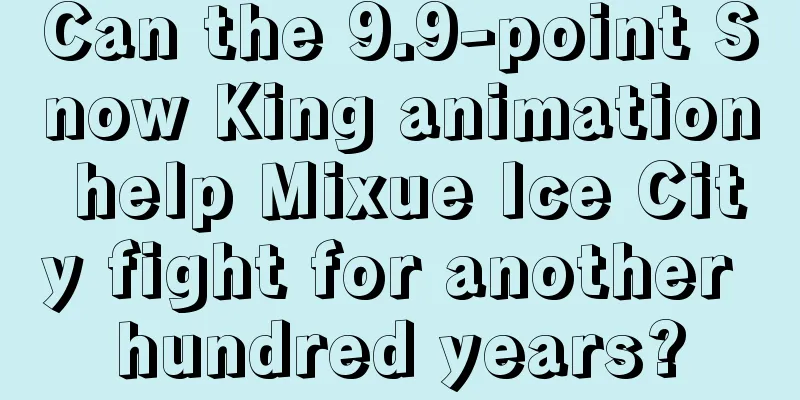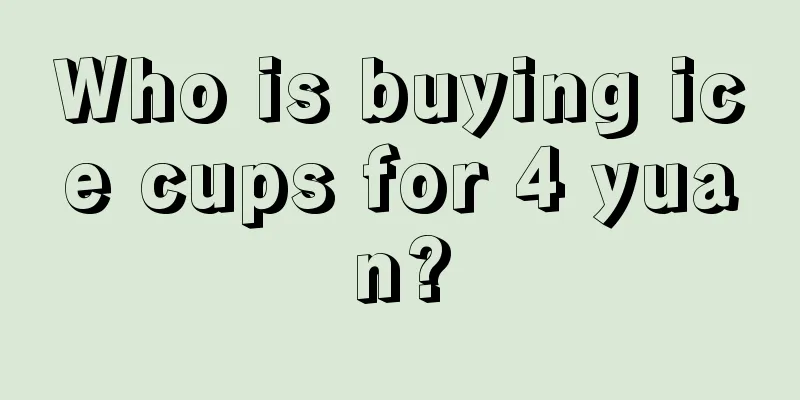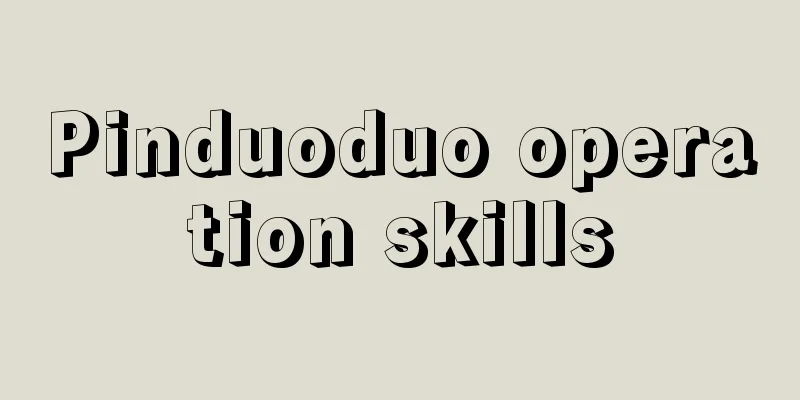Copywriting breakthrough: imagination or insight

When you work hard all night to write a piece of copy and send it to the work group:
We often see big but meaningless copywriting in advertisements, especially car and real estate advertisements, which are the hardest hit areas. For example, "the glory of a class". You say it has no imagination, but it is good at creating castles in the air, and can think of a class from a house; you say it has no insight... Well, it really has no insight, which class, how can it be glorious, why does this class need this glory. Isn't Honor a mobile phone... Copywriting based on imagination alone cannot impress people because it lacks the foundation of life insight. So, what is the relationship between imagination and insight, and how can we write copywriting that impresses people? 1. Imagination is possibility, insight is sense of proportionYu Hua said in My Literary Path:
Imagination is the writer's creation that comes from life and transcends life. Otherwise, what you write will be no different from the daily account of ordinary people; and insight is the writer's narration of details, writing about those things that already exist but are ignored by ordinary people, the most ordinary but most touching things. In his early years, Yu Hua admired Kawabata Yasunari very much. The latter wrote about the glass on the long table of the hotel in "The Existence and Discovery of Beauty":
This paragraph is very imaginative. A bunch of ordinary cups look like a team going to war, like gems, and like stars. It is also very insightful. The bright spots are not in the same place on the arc of the bottom of the cup. The ultimate beauty of light and shadow is so real and the insight is so detailed! But if you just write that the cups are like a team, gems, and stars, without those minute and vivid descriptions, it will not be convincing and will not attract people. So imagination is responsible for opening up more possibilities, and insight is about finding focus points based on reality within the possibilities. We have to admit that the products that most copywriters deal with are as ordinary as this glass, with ordinary design and ordinary performance, but wonderful copywriting and art can give products personality and vitality. The author's extraordinary imagination and meticulous insight make this glass no longer a cold industrial assembly line product, but a work of art with high-level aesthetics. It clearly comes alive in the sun, shining, blinking, full of vitality, calling friends. Don't you want to buy a few and put them on your bar at home? Not to mention that it is very comfortable to look at in the sun, if you pour a glass of water and add some ice, the transparent glass body, together with the water and ice inside, shakes with subtle light. If you change it to whiskey, shake it slightly, the amber liquid ripples gently in the bright light, can you already smell the intoxicating warm oak barrel scent? 2. Which is more powerful, the mighty force of the sun or the gentle blow of the moon?Teacher Liu Shenleilei mentioned who is the best Tang poetry writer in the book "Tang Poetry: A War between the Sun and the Moon". He listed all the popular Tang poems, most of which were related to the sun or the moon. The one who entered the finals was Wang Zhihuan.
This poem is a masterpiece that will be remembered throughout the ages and is the most perfect representation of the spirit of the prosperous Tang Dynasty. It deserves to win the first prize. But unfortunately, Li Bai took action.
Teacher Liu Shenleilei believes that in terms of realm, ingenuity and ingenuity, "The sun sets behind the mountain" is not inferior to "The moon shines brightly before the bed". It loses to the human heart - the former is a grand rhetoric, while the latter is a collision of the soul. After all, the majestic atmosphere during the day is not as moving as the longing under the moon. I think that "wanting to see as far as a thousand miles away" is indeed heroic, but it is too far away for ordinary people. Only a very small number of people who are born with talent can "want to see as far as a thousand miles away" and "reach a higher level". Most people are ordinary people like you and me, who care about food and vegetables. No matter how far they go, they always miss their hometown and family the most. That is why "Quiet Night Thoughts" has become a common memory of Chinese people around the world. Wherever there are Chinese people, every reunion festival, there must be "looking up at the bright moon and looking down at my hometown". It is certainly difficult for a copywriter to write such a great work that will be passed down through the ages, but this also brings us some inspiration. In terms of imagination, Wang Shi seems to be better; but in terms of insight, Li Bai, a bold and unrestrained person, is rare in his subtlety and touches the heart. In advertising, we often talk about big idea, which actually refers to the big strategy of a brand or project, such as the meaning of travel for LV and the devaluation of happiness by Coca-Cola. The big idea requires "looking far into the distance" and looking at the long term to find a story theme that can keep the brand communication going. It has strong vitality, scalability, and universal values; but when it comes to specific execution, we need "the moonlight before the bed", and the execution creativity must be small, because we are just "a mayfly in the world, a grain of sand in the vast ocean", and things that are too big are difficult to resonate with people. For example, when we recall our youth, what moves us is not such irrelevant things as the beautiful memories spanning twenty years, but the white shirt you wore when we first met, the clear laughter you heard while riding a bike through the shade of trees on campus, and the naughty ponytail of the girl in the front row who turned her head and swept your pencil off the table. Keeping creativity small does not mean that we should bury ourselves in the insight of details, but that details will make people feel real and tangible, and that the big can be seen in the small. When we talk about family and country feelings and the vicissitudes of history, the wonderful details in the grand narrative will make the copy like a magnificent palace, but the brick and stone texture of the palace is extremely clear, as if it is right in front of you. For example, CCTV documentary "If National Treasures Could Talk":
3. There is nothing new in the world; all new things are just forgotten.
This is a quote from Bacon in his essay, and was used by Borges at the beginning of his novel collection Aleph. This quote inadvertently reveals the secret of creativity and is applicable to all industries related to creation, including advertising. For advertising copy to break through, it is not enough to have grand imagination and details, but also creativity. The so-called creativity is to find the unknown in the known and the strange in the familiar. Seeking creativity with imagination and insight is actually seeking the intersection of the known and the unknown, and the connection between the familiar and the unfamiliar. Borges has a very amazing metaphor in "Another Death":
Death is common, water is familiar, and death is like water. There is nothing new in the expression. However, water disappears into water, and the subject and the metaphor are consistent. This is an innovation in form; life is like a drop of water falling into water, splashing ripples, and then gradually disappearing, returning to calm, as if it had never been there, disappearing so thoroughly and cleanly, this is an innovation in artistic conception. Familiarity and strangeness are perfectly connected in the creative expression of "water disappearing into water". Advertising is ultimately the follower of business, helping sales, with the goal of getting people to choose and buy products. Advertising gives products reasons to be worth having, and gives many not-so-novel products novel meanings. This is the original sin of copywriting, but also the magic of copywriting. For example, a watch is a product that can never have any breakthrough innovations, and it will definitely talk about time, which is something that everyone is familiar with. How can you bring out the unfamiliarity and the newness in the known? This is a great test for the copywriter.
All three slogans are powerful. They all talk about time and "possession", but the insights behind them are different. Solvil et Titus talks about the happy moments in life, and once you have them, you will have no regrets; Vacheron Constantin talks about the symbolic meaning of the brand to a successful life, and precious time is just an ordinary thing in comparison; and PATEK PHILIPPE redefines "possession" as a king, making a watch transcend the "possession" in the sense of an object, and connecting it with the ultimate pursuit of mankind - life reproduction and family inheritance. They have all achieved a breakthrough in copywriting between the limitations of the product and the shackles of content, allowing the product to be reimagined and giving the brand richer value through insights. To sum up, imagination is a wild horse running wild, insight puts the reins on the horse, and wonderful creativity or copywriting is like riding the horse on a tightrope, with wild imagination but also careful and steady "horse steps", which makes people feel bright and there is no worry of "falling off the horse". Author: Chen Wuyong Source: WeChat public account "Chen Wuyong (ID: wuyongzhiyong2022)" |
<<: Pinduoduo operation skills
Recommend
How to check Amazon's click-through rate? How to improve it?
On Amazon, the global e-commerce giant, the click-...
What is the difference between Amazon boutique shopping and premium shopping? What are the techniques for boutique shopping?
On Amazon, some merchants use the traditional dist...
This is what I concluded behind the sales of 60 million goods on Xiaohongshu store?
Recently, the drawers of my colleagues in the comp...
Why did the seemingly beautiful flower shop business become a black hole for entrepreneurship? | Qixi Business Tips
In the past, flower shops were full of orders on C...
Can I change the store name on Wish? How to operate Wish?
The cross-border e-commerce market is huge. Among ...
Why do customers still not buy even though you lowered the price?
Often, it is not just the price that determines wh...
What are the conditions for using Shopee store ads? The conditions vary on different sites
For Shopee merchants, promoting the store is essen...
Is printer sharing a profitable business?
With the development of the sharing economy, why a...
Can automatic distribution be used to distribute goods to Shopee? What are the distribution modes?
For Shopee merchants, there are many things to do....
Does the Amazon payment account have to be a legal person? How to avoid association?
Merchants who open stores on Amazon need to prepar...
There is no ceiling for those who understand brand operation
This article focuses on brand operations and share...
Good copywriting, understanding of human nature
How to understand the motivation behind behavior i...
How much does it cost to do it on Amazon? What fees are included?
For cross-border e-commerce operations, each selle...
It seems that Taobao is making every effort to leverage WeChat
Recently, some Taobao apps can use WeChat payment....
What do you need to prepare when you first start selling on Amazon?
If you are an experienced merchant doing Amazon bu...









